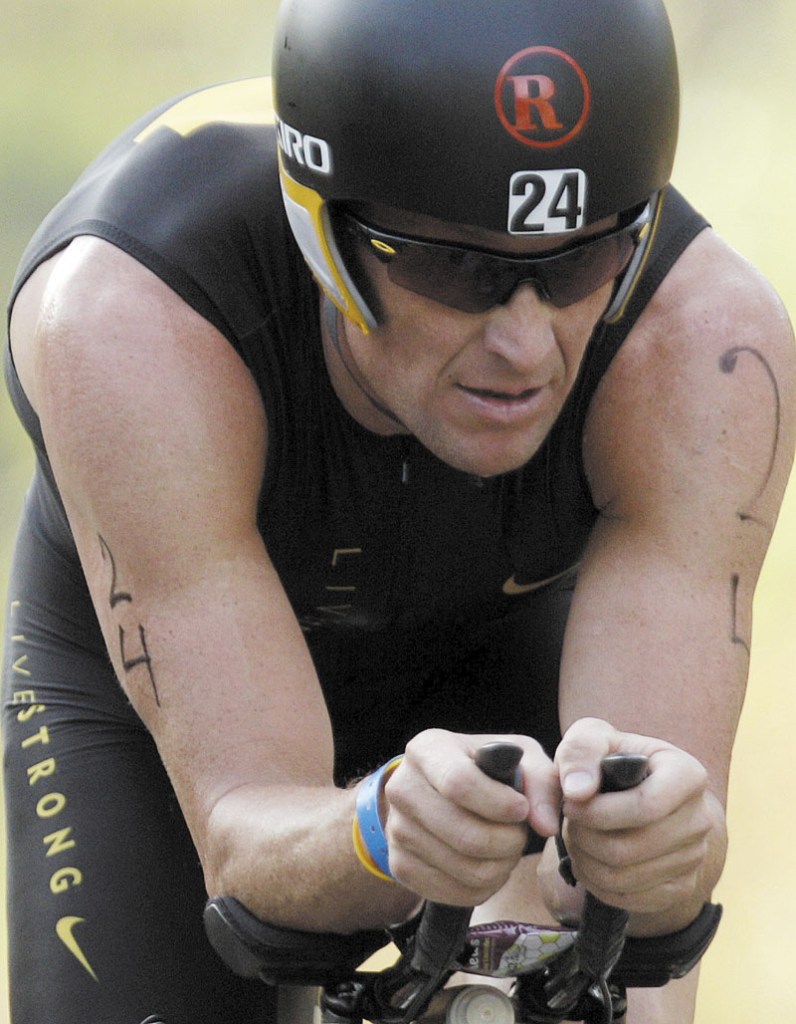AUSTIN, Texas — Lance Armstrong is gearing up for a fight over the latest round of doping allegations.
Armstrong’s lawyers demanded access to evidence gathered by the U.S. Anti-Doping Agency, including test results and the names of witnesses who said they saw the seven-time Tour de France champion use performance-enhancing drugs.
Armstrong has until June 22 to respond in writing to the fresh allegations, the first step of what could be months-long process.
“I’m exploring all my options,” Armstrong said in a telephone interview Thursday with The Associated Press from Paris. “They’re not limited only to arbitration with USADA. I think there are other questions that need to be answered with regard to their behavior and tactics.”
“They are well known to move the goal line on you,” he said, referring to the drug agency.
“We are entitled to certain things, certain pieces of evidence, if not all the evidence in terms of what will be in front of the review board,” he said.
The AP obtained a copy of the letter Armstrong’s attorney, Robert Luskin, sent to USADA.
“(We) cannot protect Mr. Armstrong’s rights without knowing who is saying what and what events that allegedly occurred over the course of a decade and a half,” Luskin wrote. “Even at this preliminary stage, your reliance on secret witnesses making deliberately vague charges is unconscionable.”
The letter noted that USADA and other drug agencies “have long demonstrated their zeal to crucify Mr. Armstrong. … We have learned the hard way not to underestimate USADA’s obsession with Mr. Armstrong.”
In a previous letter, Luskin complained that USADA officials tagged along with federal criminal investigators to interview witnesses during a two-year probe that ended in February with no criminal charges against Armstrong.
Armstrong had hoped that case would end the doping questions that have dogged his career, but USADA said it would press its own investigation. The agency notified Armstrong on Tuesday that the new charges would be filed.
Armstrong could be stripped of the Tour titles he won from 1999 to 2005 and banned from cycling, though he retired from the sport last year.
USADA says that blood samples from 2009 and 2010 are consistent with performance-enhancing drug use and that more than 10 former Armstrong teammates and support personnel will testify they saw him use drugs or talk about using them.
USADA has said it will not release the names of witnesses at this stage to protect them against possible attempts at intimidation.
The 40-year-old Armstrong was training for a June 24 triathlon in France, but was banned Wednesday when the new allegations were announced. He said Thursday he was returning to the United States, then decided to stay with hopes that triathlon officials would change their mind.
Jessica Weidensall, spokeswoman for World Triathlon Corp., which runs the Ironman competition, said race officials would announce an update on Armstrong’s status on Friday.
Luskin’s letter notes that the blood samples collected in 2009 and 2010 — when Armstrong came out of retirement to race again in the Tour — didn’t result in positive drug tests at the time.
“As you well know … he successfully passed every test administered to him during that period, as he has passed every test that was ever administered,” Luskin wrote.
Pierre Bordry, who headed the French anti-doping agency from 2004 to 2010, said the USADA action was important to help defend the image of the Tour de France.
“It shows there’s no amnesty,” said Bordry, who presided over the agency, known as the AFLD, during one of the most scandal-ridden eras in the long history of doping on the Tour.
He said that among nearly all of the top cyclists during Armstrong’s era, “he’s the only one who was never penalized. Maybe he did nothing wrong, but it needs to be shown.”
“The worst thing is to not resolve the problems. Either he doped or he didn’t, but we have to have the answer,” he said. “I think the American agency wants to show — as it has with several other athletes — that the United States, like other countries, fights against doping. It’s a strong signal.”
——
AP Sports Columnist Jim Litke and Paris reporter Jamey Keaten contributed to this report.
Send questions/comments to the editors.



Success. Please wait for the page to reload. If the page does not reload within 5 seconds, please refresh the page.
Enter your email and password to access comments.
Hi, to comment on stories you must . This profile is in addition to your subscription and website login.
Already have a commenting profile? .
Invalid username/password.
Please check your email to confirm and complete your registration.
Only subscribers are eligible to post comments. Please subscribe or login first for digital access. Here’s why.
Use the form below to reset your password. When you've submitted your account email, we will send an email with a reset code.